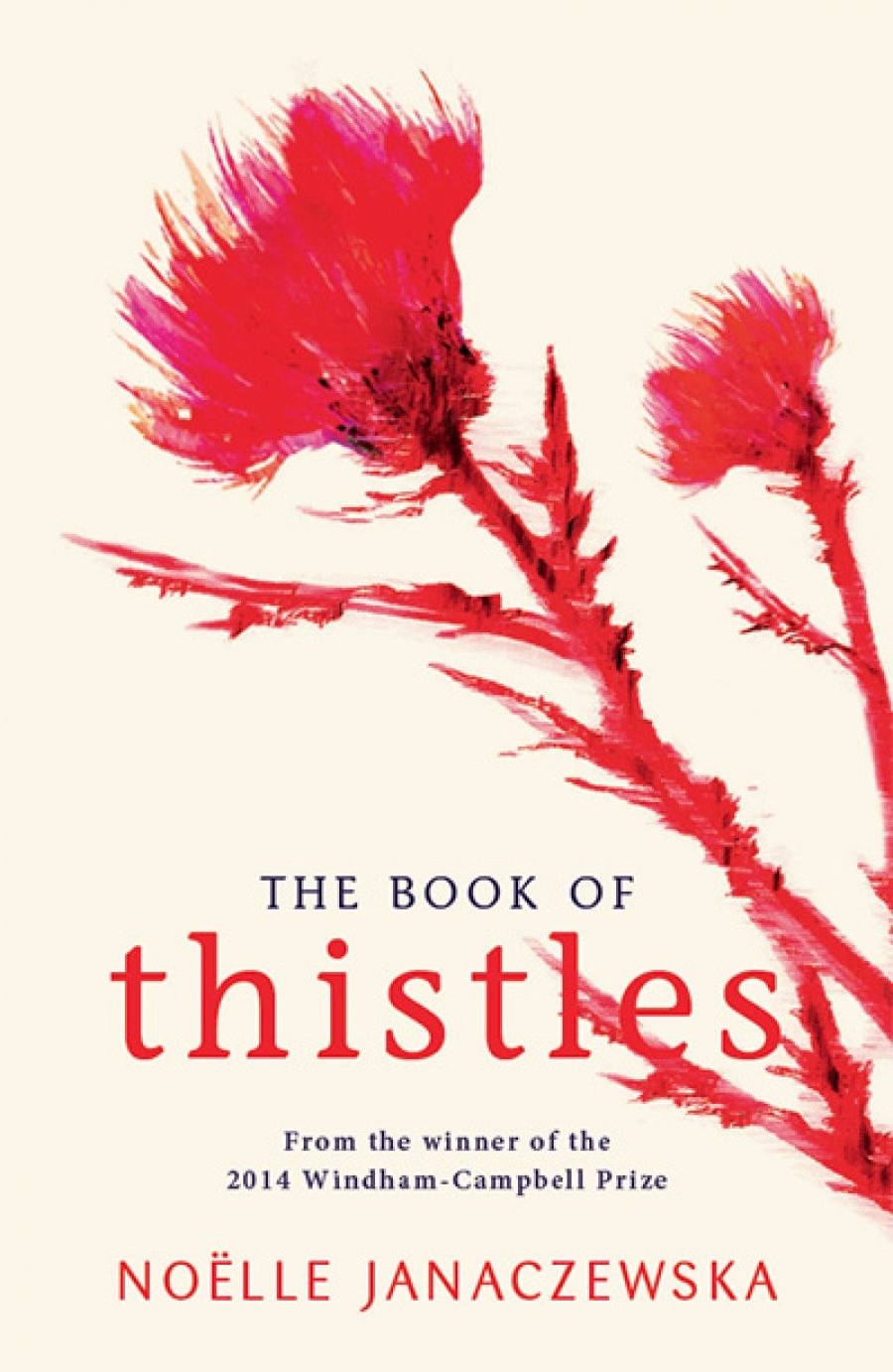
- Free Article: No
- Contents Category: Memoir
- Custom Article Title: Ceridwen Spark reviews 'The Book of Thistles' by Noëlle Janaczewska
- Review Article: Yes
- Online Only: No
- Custom Highlight Text:
Every Saturday around Australia, the suburbs hum with the sound of lawnmowers. While cutting grass, the mowers simultaneously decapitate the milk thistles (also known as sow thistles) that sprout in most gardens around the country. But this rude beheading is little more than an inconvenience from which these hardy plants soon recover. Perhaps this is ...
- Book 1 Title: The Book of Thistles
- Book 1 Biblio: UWA Publishing, $29.99 pb, 303 pp, 9781742588049
But what if we consider these apparently weedy outliers from a different angle? Does our view change when we discover that milk thistle sustained Maori and Australian Indigenous peoples for millennia, or when we learn that, during the war, English mothers picked them to supplement the diets of hungry children when other foods were rationed? What if we were to conceive of thistles as ‘stellar performers in the struggle for existence’ rather than as an aesthetic and ecological blight?
Noëlle Janaczewska considers such questions in her aptly titled The Book of Thistles. Like the thistles that constitute her subject matter, she enters marginal territory to do so. Hers is a risky venture, not least because it is likely few people share her passion for this prickly subject. Further, as the author points out, thistles have tended to be discussed in impenetrable language such as that employed by government botanist Ferdinand von Mueller in his ‘practical guide’, Illustrated Description of Thistles, Etc. (1893).
Fortunately, Janaczewska is no botanist, but rather an award-winning playwright, poet, and essayist. While the book’s front cover mentions her having won the 2014 Windham–Campbell Prize (a lucrative award in the United States), she has also won the Queensland Premier’s Literary Award, various playwriting and radio awards, and been a finalist for the prestigious Susan Smith Blackburn Prize.
Deeply curious about history’s ‘gaps and silences’, Janaczewska’s work explores subjects that have been overlooked or marginalised. In The Book of Thistles, she couples her idiosyncratic fascination for this sub-species with a willingness to transgress the boundaries of literary genres, to explore big themes and questions. Thus, while we learn much about thistles themselves, they are also a vehicle for exploring questions of belonging, value, and marginality. Often witty, sometimes political and occasionally profound, this latest offering from Janaczewska provides much on which to ruminate.
 Milk Thistle flowerhead, Swifts Creek, Victoria (Wikimedia Commons)
Milk Thistle flowerhead, Swifts Creek, Victoria (Wikimedia Commons)
The book is divided into headings, including ‘Names’, ‘War’, and ‘Food’. This structure is a useful device not least because it helps to contain the author’s predilection for tangents, only some of which she signals explicitly. It also enables Janaczewska to move between genres without the chaos this might otherwise represent to readers. She does so adeptly and with humour. Poetry, miniature plays, and minor essays are all contained within The Book of Thistles. Her five-page play about the peace a couple achieve when they finally purchase weedkiller – and thus neighbourhood belonging – is a notable example of her obvious skills in this genre. Some of her poetry is a joy. Take, for example, the following extract from one about England, her native country:
Yes, to rushy streams, overarching trees,
The midnight snowfall that winter brings
No, to a longish list of other things
The research that underpins The Book of Thistles is also commendable. If the book takes us into unexpected places as a result of its overall poetry, it also retains our interest because we learn surprising things. There were, for instance, large numbers of Afghan shopkeepers in Western Australia in the nineteenth century; Joseph Conrad’s wife, Jessie, was a good cook, including of salsify, a root vegetable belonging to the dandelion family; and bimbimpap means ‘mixed-up rice’. Behind all these intriguing facts is an author who has not only spent much time in libraries but who also draws creatively on a wealth of cross-cultural experience including in Australia, France, and Korea.
Despite the book’s many achievements, minor things grate. Although Janaczewska’s willingness to play with conventions is effective, the incomplete sentences scattered throughout the book are annoying. Suggesting a laziness otherwise absent from this otherwise delicately crafted book, these were unfortunate, not only because they are avoidable, but because they distract from the otherwise accomplished writing for which the writer has been deservedly recognised. At times the book is less engaging than at others. While this may reflect personal taste – the section on food, for example, fascinated me, less so the section on law – it could also be due to a slight unevenness in the writing.
Despite these minor shortcomings, The Book of Thistles is a surprising pleasure. Perhaps its greatest achievement is that the humble thistle becomes an unlikely hero of the downtrodden, devalued, and deviant. Although she never comes out and says it directly, Janaczewska appears to identify with the thistle. Like Emily Dickinson, who was herself the daisy she described in her poems, this immigrant from England conveys a certain thorniness and non-belonging that mirrors that of her chosen subject.


Comments powered by CComment